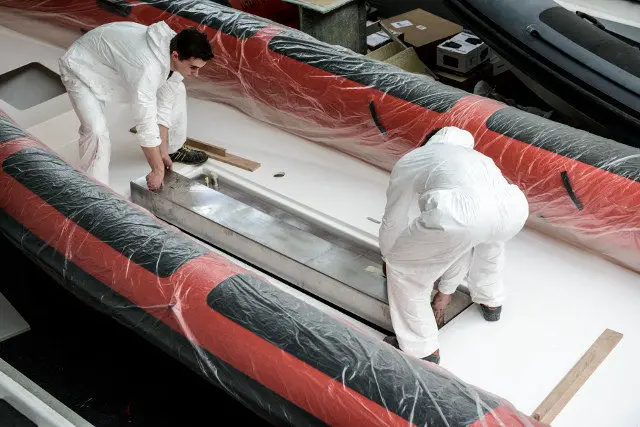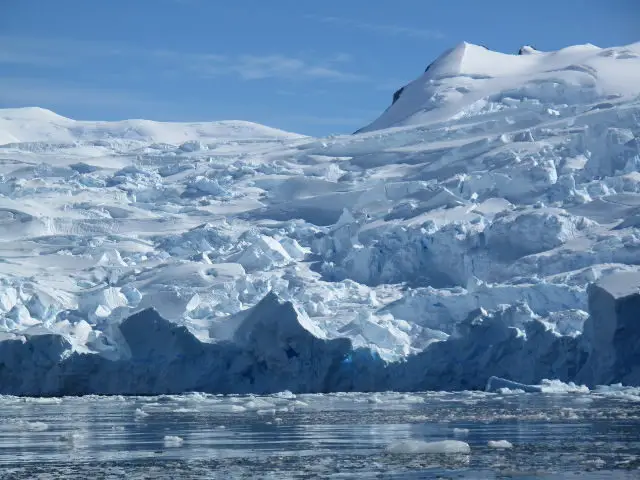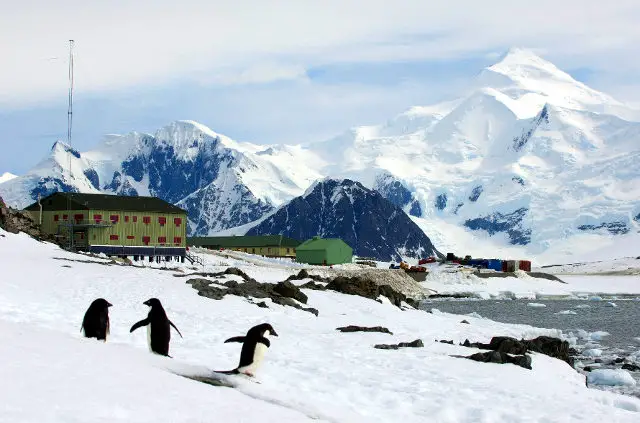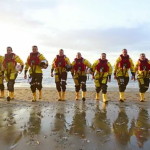Island RIBs, boat builders on the Isle of Wight, have been commissioned to build two 7.5m RIBs, capable of withstanding the harsh environment of the Antarctic. The boats, which will be deployed by the British Antarctic Survey (BAS), demonstrate high levels of sea keeping ability, stability and flexibility of design.
The team from BAS, with collectively over 100 years of professional RIB handling experience, including 25 years working on small boats in polar waters, will operate the two new craft out of Rothera Research Station, the UK’s Antarctic Hub, located on the Antarctic Peninsula.

The research craft’s primary roles are to support the BAS world-class marine science and operate as a search and rescue vessel for the research station.
Many uses for the boats
The two Island RIBs boats will be used to transfer scientists, engineers and their equipment to and from the remote island sites in safety, battling the unpredictable, freezing conditions. They will be used as a platform for research divers, as well as to deploy and recover sampling equipment and autonomous underwater vehicles.
The base platforms are designed to be interchangeable, so either of the boats can be deployed as a search and rescue craft or a dive vessel for the teams that work from the Rothera station. This flexible design has a series of deck fittings installed that allows all seats, dive suites and stowage boxes to be changed or removed entirely. The RIBs are also fitted with custom Mercury engines from Barrus and enhanced tubes from Venture Marine Ltd.
Burke: “A fantastic opportunity”
Jo Burke, Director of Island RIBs commented that:
“This contract is a fantastic opportunity for us. The boats selected by BAS are our standard production boats, with some minor modifications to protect the tubes against ice damage. This is testament that our design works due to the attention to detail that has gone into developing it.
“Our RIBs are built with a focus on safety, durability and ease of maintenance. A BAS technician, who is very likely not a marine engineer, with training, will be able to carry out maintenance and repairs. This is especially important considering the remote locations they will be operating in.”
Rothera Research Station
The Rothera Research Station, first opened in 1975, is located at the southern tip of the Wormald Ice Piedmont, just to the west of the Antarctic Peninsula, on Adelaide Island. The personnel at the research station fluctuates from over 100 in the summer to a lean 22 during the winter months ensuring the research hub continues to support the deep-field and air operations throughout the year.
During the summer months, teams from the British Antarctic Survey, UK universities and international collaborations use the state-of-the-art Bonner Laboratory and dive facility to study marine and terrestrial biology.

One example of research with which the Island RIBs boats will assist, is the Rothera Time Series (RaTS), which is a long-term study in its 21st year measuring the temperature, salinity, micronutrients and Chlorophyll levels at a specific site on the Antarctic Peninsula that is suffering from a rapid rate of climate change. This increase in temperature and ice loss is measured and the impact on marine productivity is assessed to improve the current predictive models of global warming.
Without reliable equipment for these scientists to use, this vital research would be hampered.
Island RIBs are proud to be supporting the British Antarctic Survey team, along with many other UK and international scientific research institutes in their endeavours to conduct long term studies of rapid environmental warming, to predict future changes and its impact on the marine ecosystem.
The boats will be launched in time to be exhibited on the Barrus stand at the Seawork – Commercial Marine & Workboat Exhibition and Conference, 3-5th July 2018.
News from Waterline Media on behalf of Island RIBS. Ed





